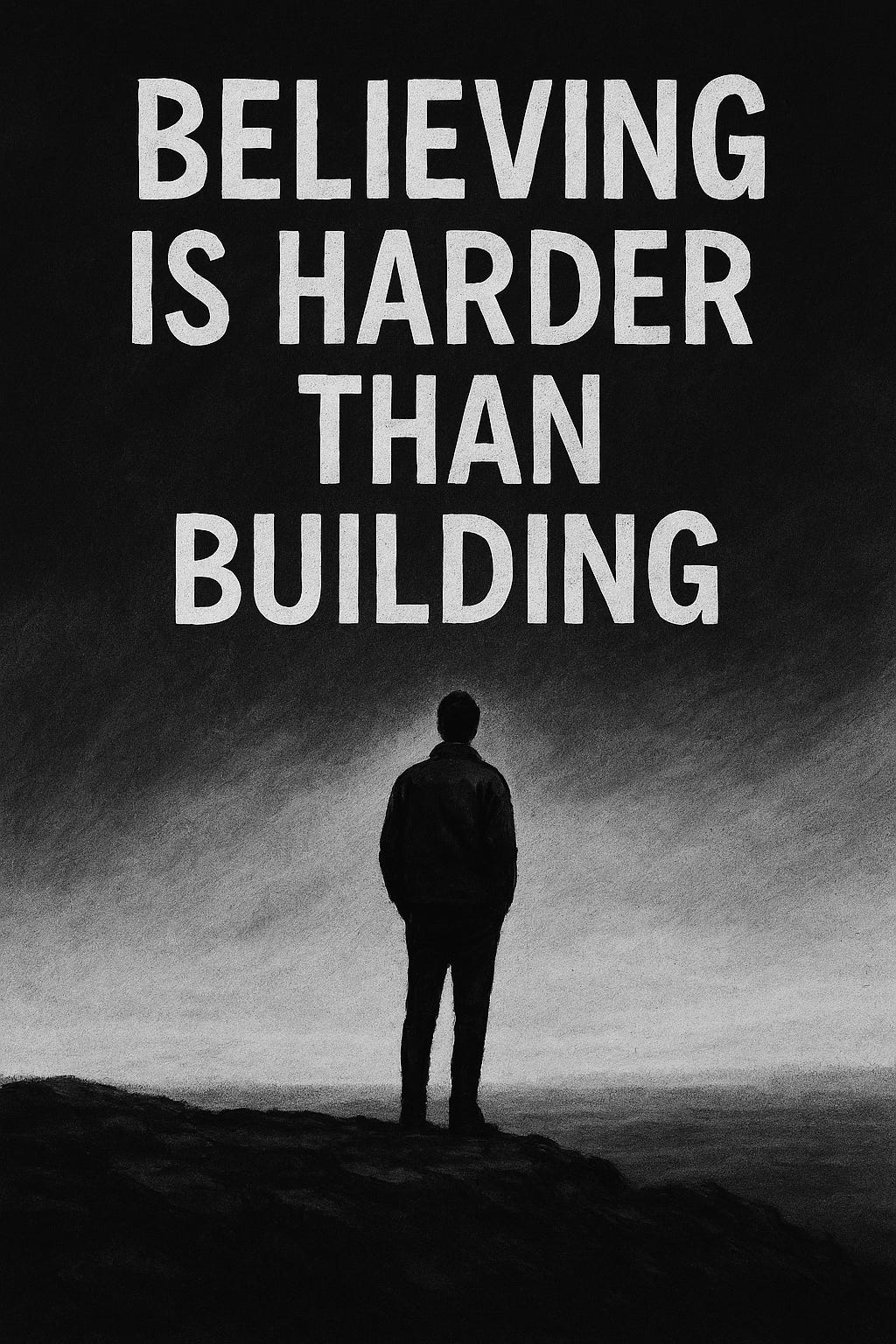The Hardest Part of Entrepreneurship Isn’t Building — It’s Believing
When I first started building, I thought entrepreneurship was about ideas.
Later, I realized it’s about stamina.
Anyone can have a breakthrough idea at 2 a.m.
Few can wake up every morning, face silence, uncertainty, and chaos — and still choose to build.
Because startups don’t ask if you have the best product.
They ask: Can you keep believing when no one else does?
The Myth of the Perfect Start
We glorify “launch days,” funding rounds, and success stories — but the real story begins after the noise fades.
It’s when you’re staring at a screen full of code that won’t run.
Or a blank slide that’s supposed to explain your life’s work.
Or a customer that doesn’t see what you see — yet.
That’s the moment entrepreneurship tests you.
Not with failure, but with doubt.
The Builder’s Paradox
Every founder lives between two opposite truths:
You must be unshakably confident.
You must be constantly willing to adapt.
Too much confidence, and you stop listening.
Too little, and you stop building.
Balancing both — that’s the art.
That’s the part no one teaches you.
Why I Still Choose to Build
Because despite everything — the uncertainty, the sleepless nights, the quiet failures — nothing compares to the moment your idea comes alive.
That first user who gets it.
That message that says, “This actually helped me.”
That’s the fuel.
Entrepreneurship isn’t about escape from chaos — it’s about making meaning inside it.
The Real Reward
The world doesn’t owe us success for trying.
But it does reward those who keep showing up.
Every line of code, every pitch, every rejection — it all compounds into something invisible until, suddenly, it’s not.
And that’s the real win:
Not luck.
Not timing.
But resilience — disguised as persistence.
Keep building.
Even when it’s quiet.
Even when it’s dark.
Even when you’re the only one who still believes.
Because belief — not brilliance — is the seed of every great company.
Written by Sherin Joseph Roy
Co-Founder & Head of Products @ DeepMost AI
Building systems that think with us — not for us.*


